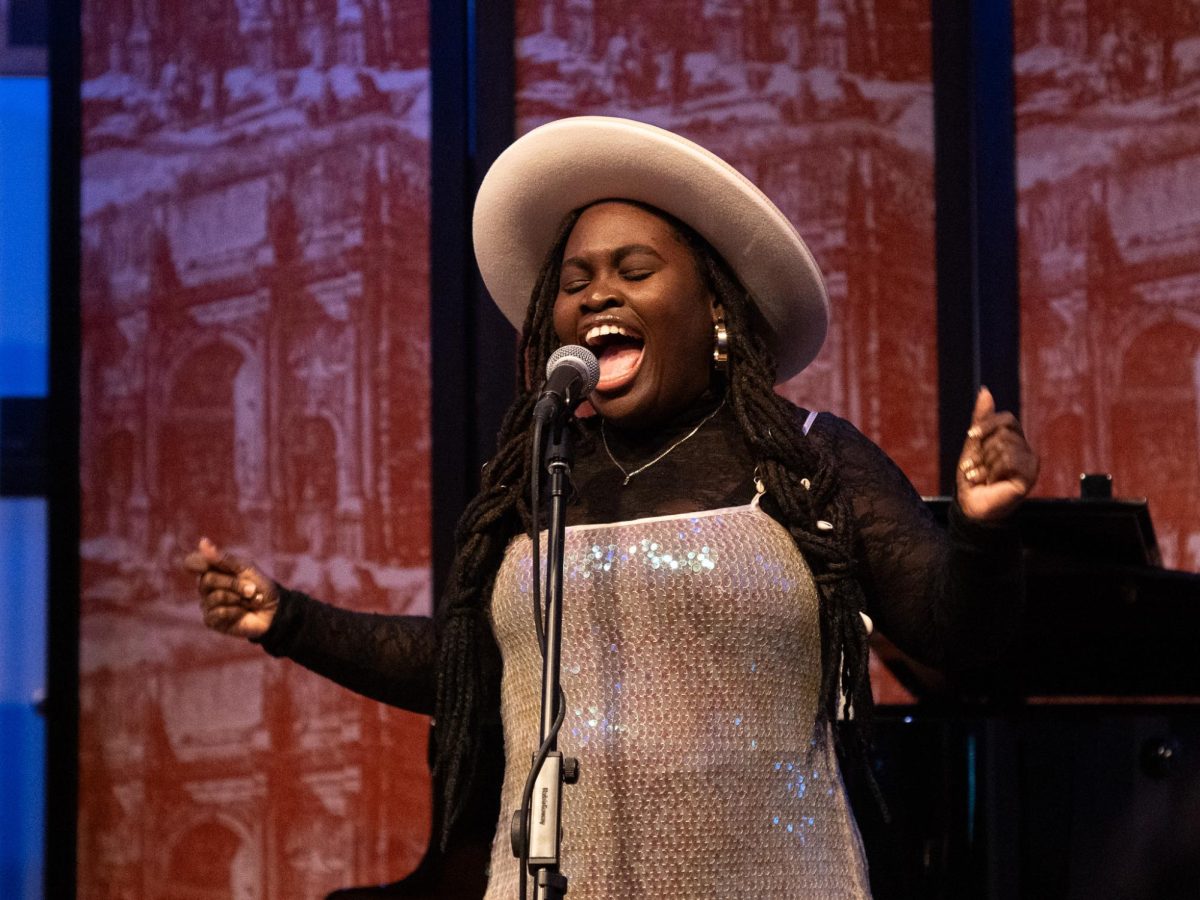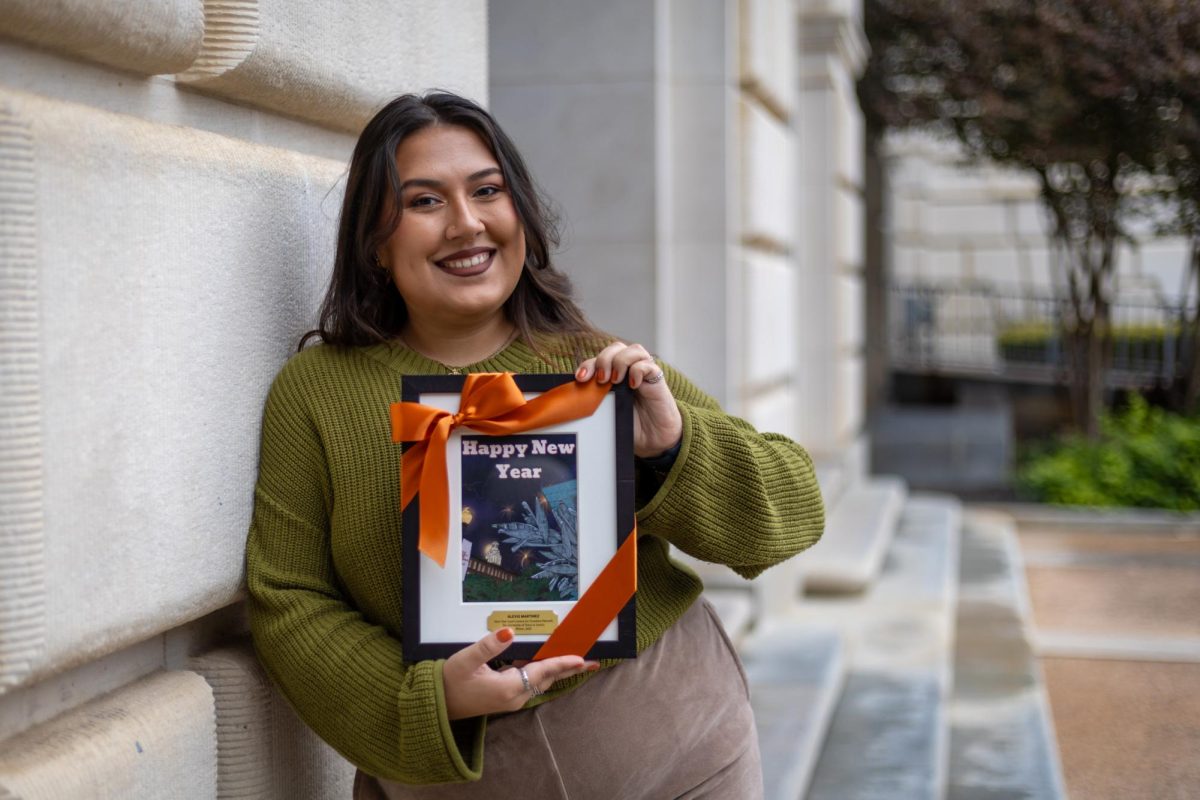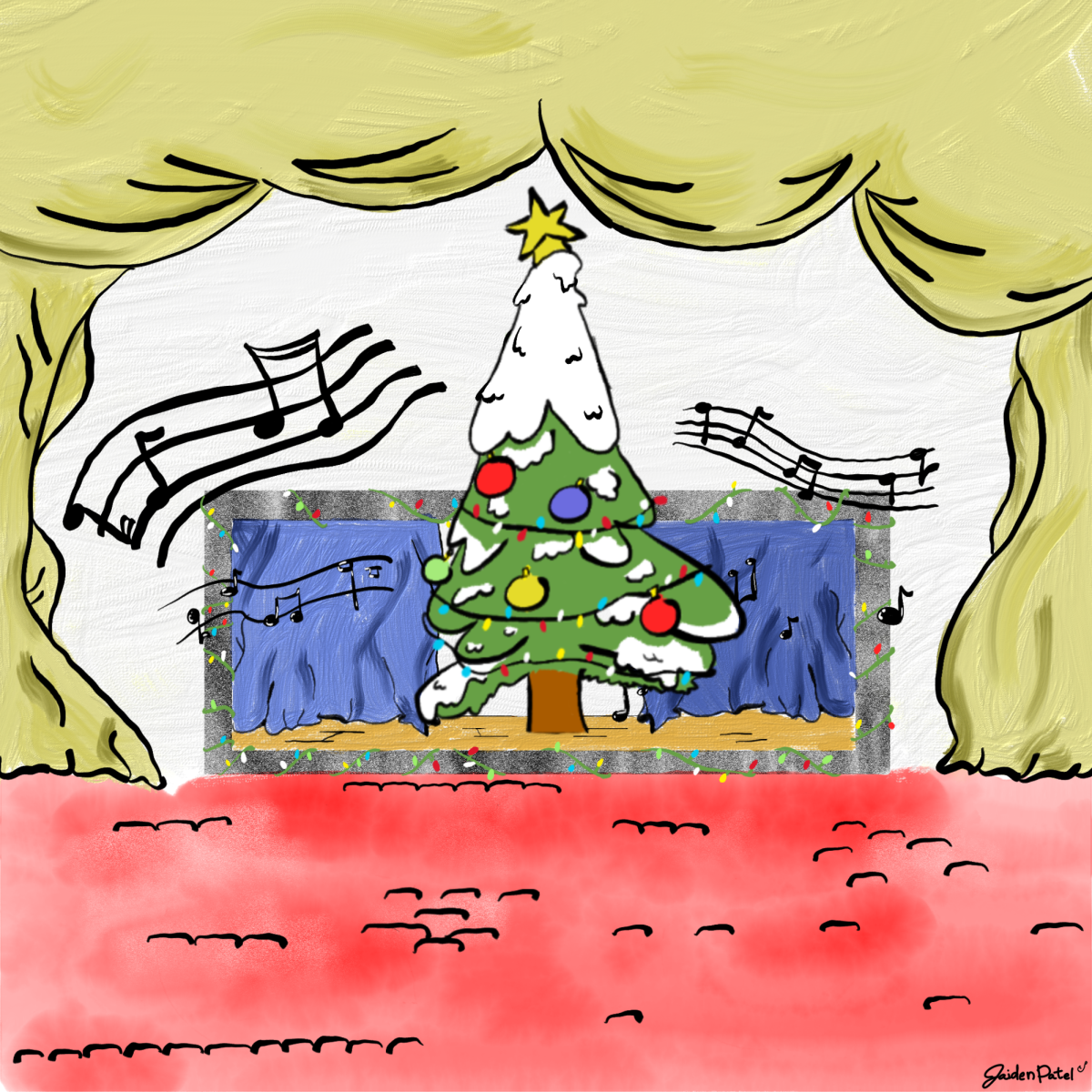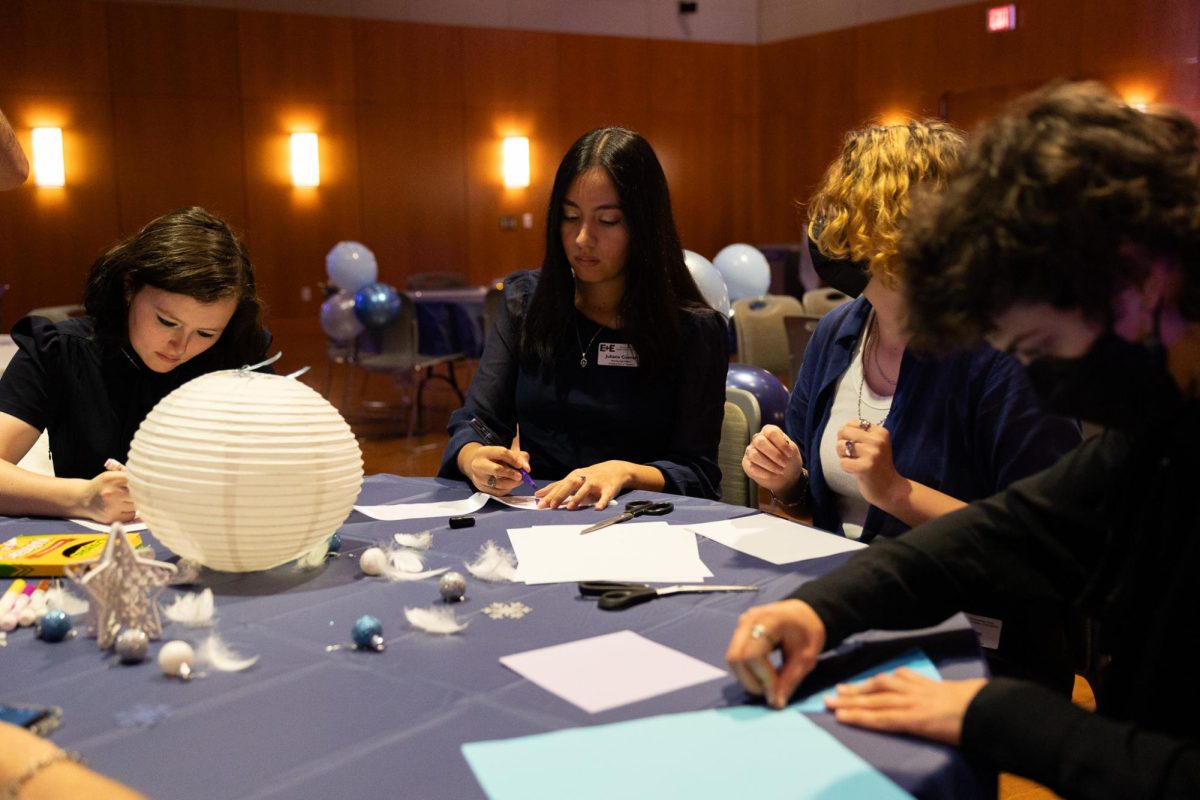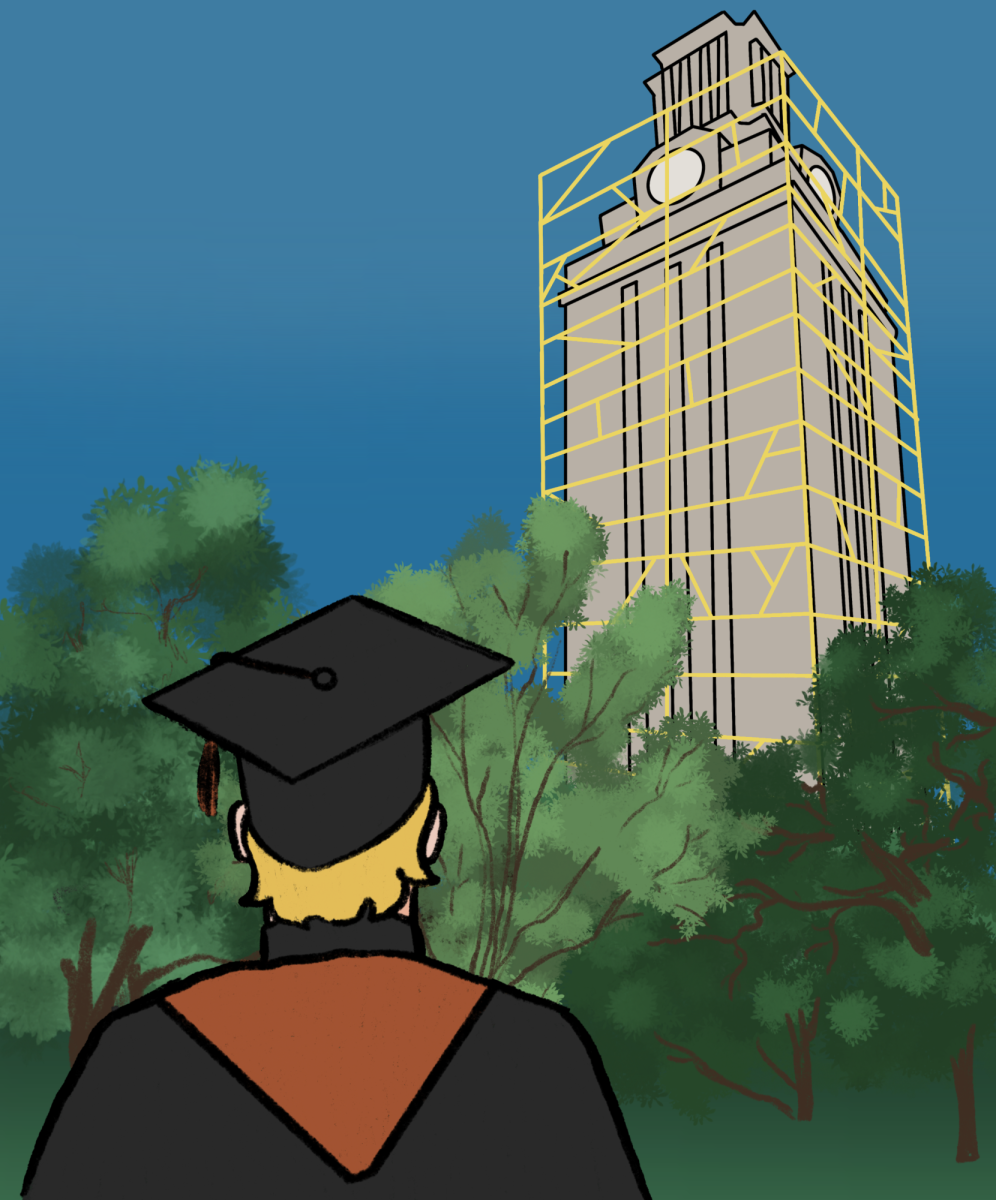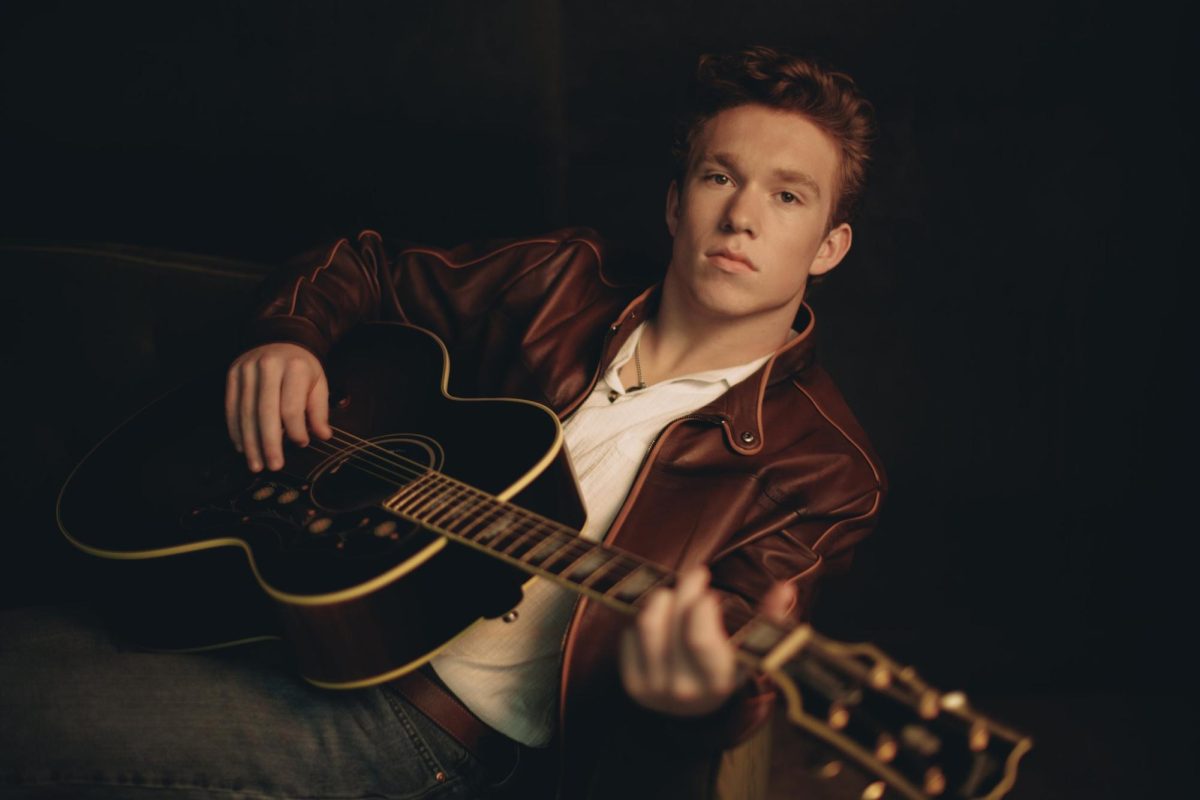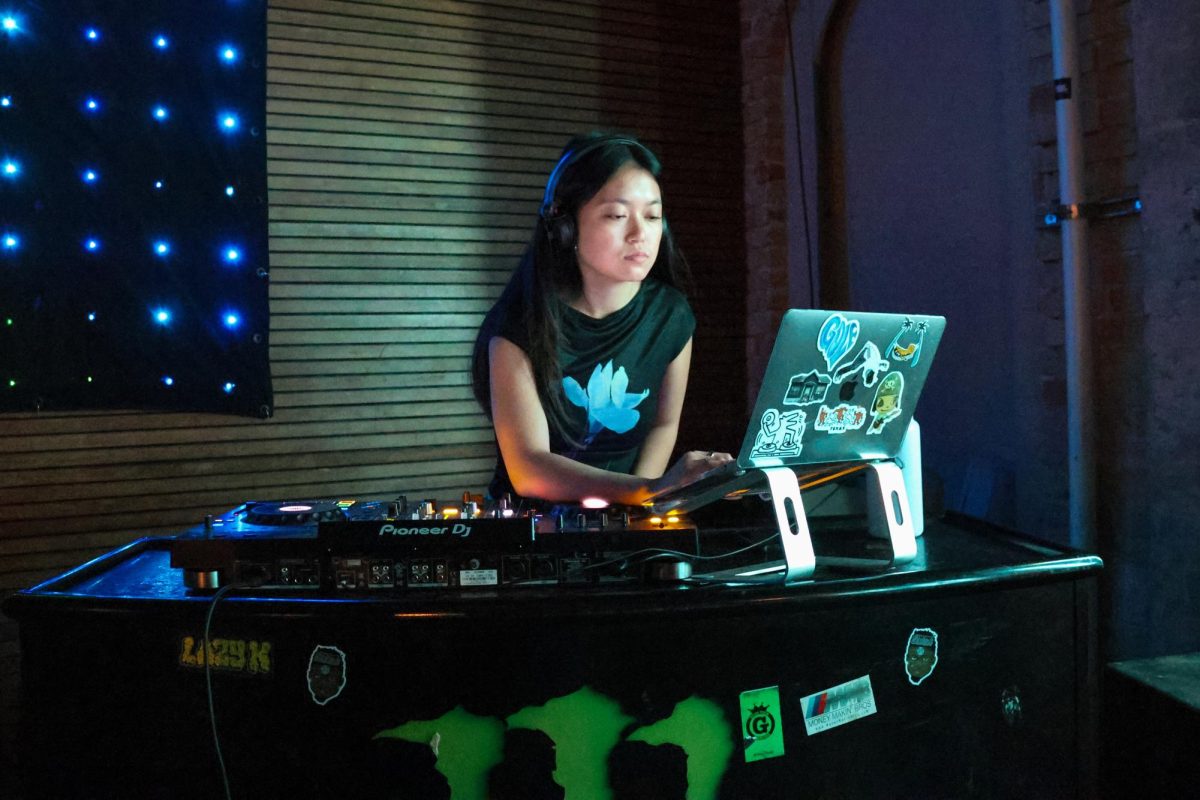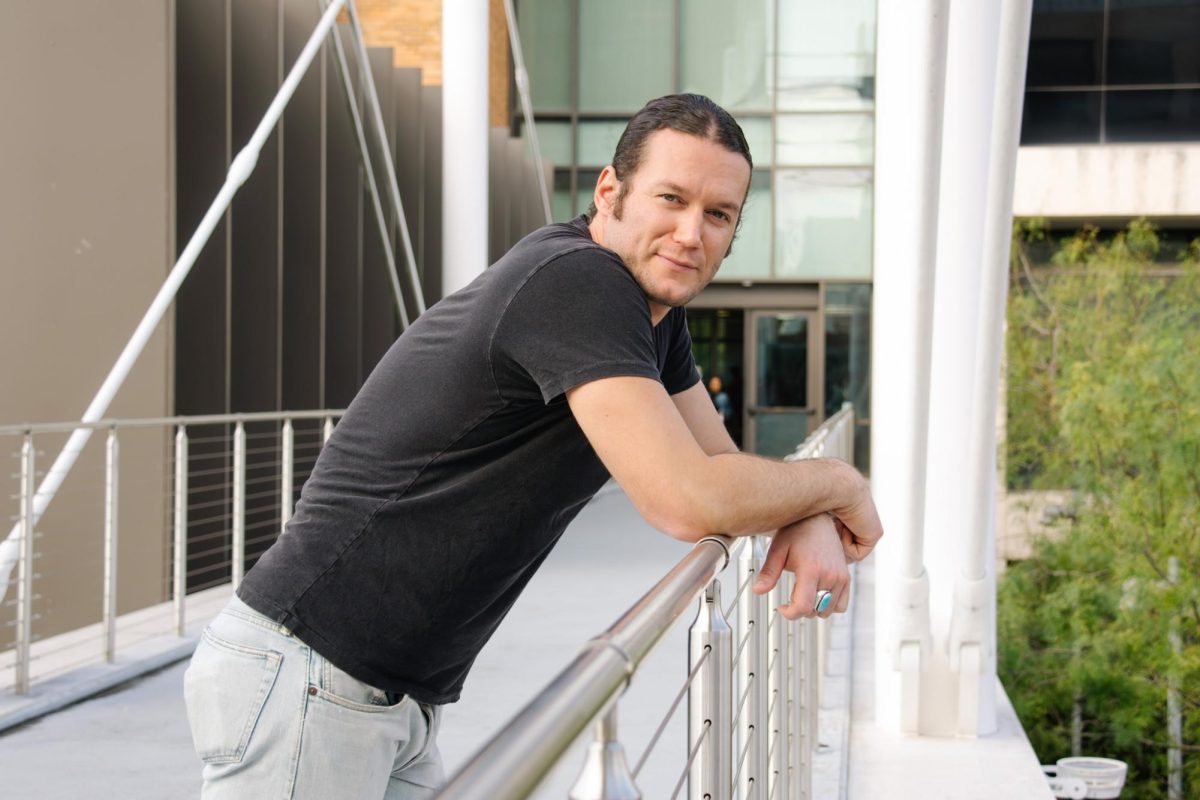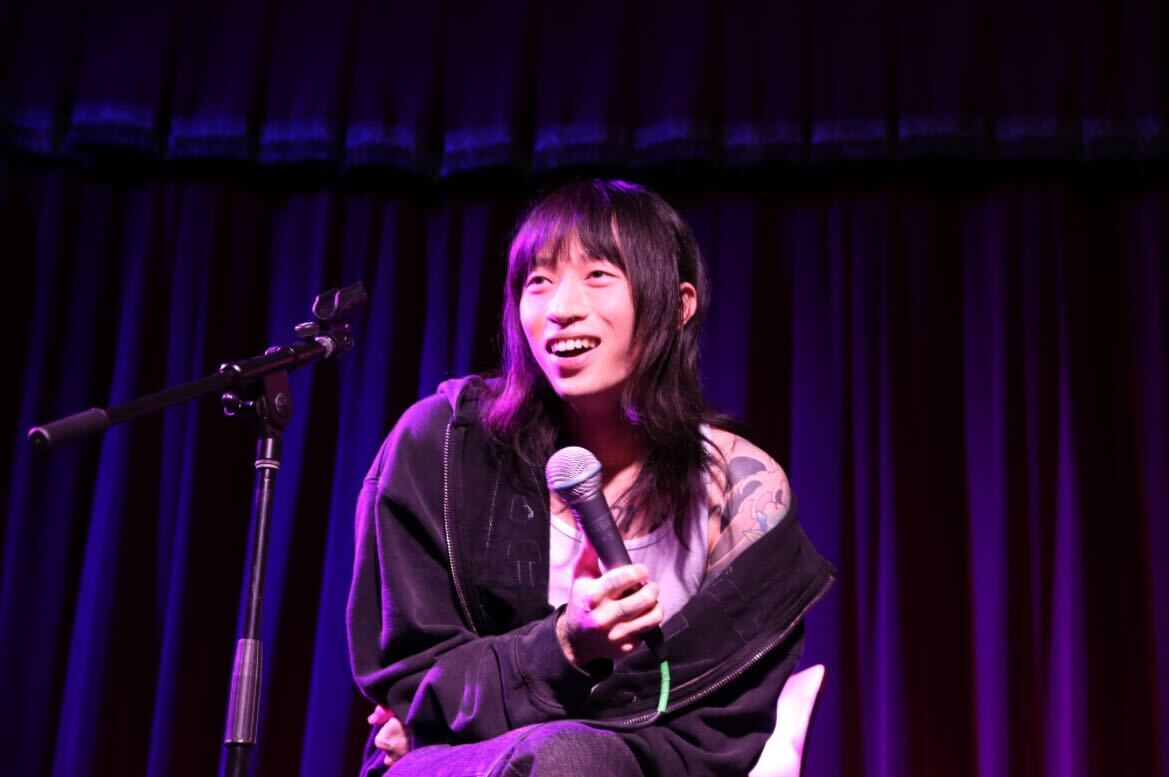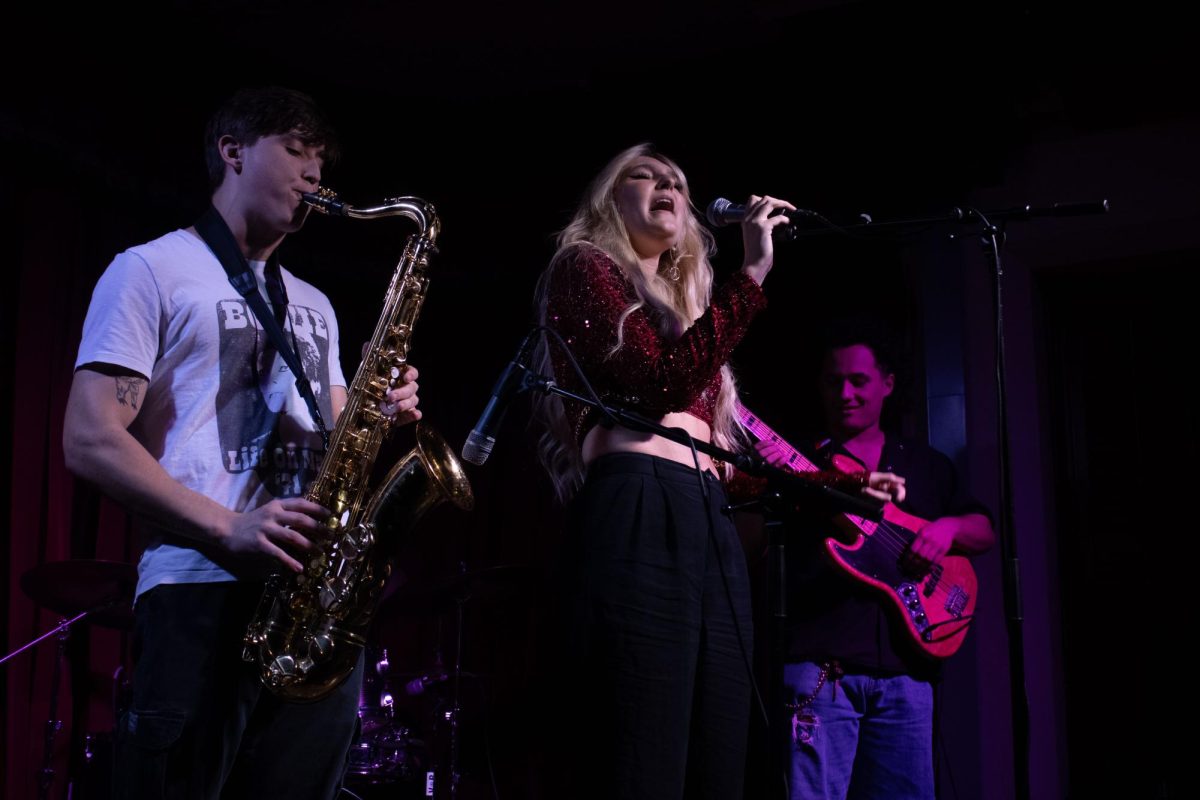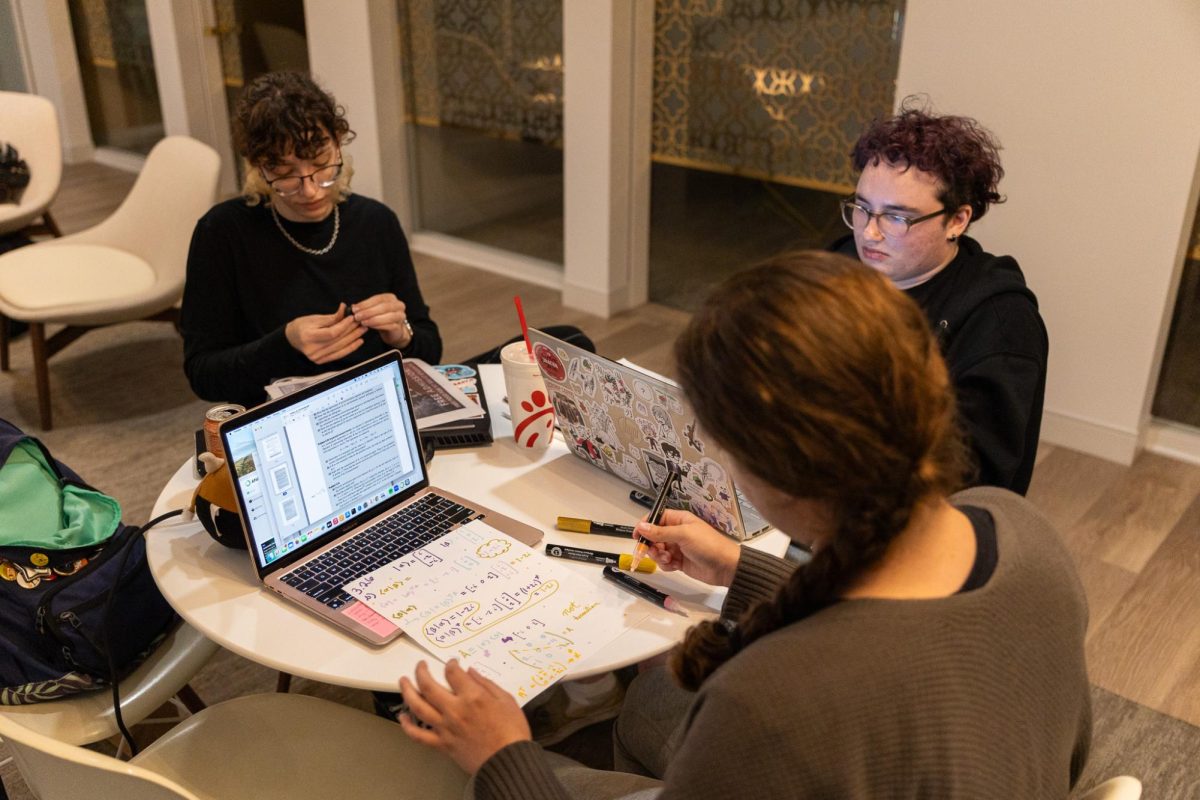Daymé Arocena’s explosive vocals echoed off the walls and reverberated through the bodies of audience members sitting in the recording studio-turned-intimate concert space.
On Tuesday, the Afro-Cuban singer-songwriter brought messages of self-love to campus during her show in the Butler School of Music’s Live Room. The Grammy-nominated artist performed her latest album in storytelling form, layering spoken snippets of personal anecdotes between an assemblage of songs she wrote throughout the past decade. The Yoruban album title, Alkemi, represents transformation, referring to the artist’s journey of love, heartbreak and, ultimately, growth.
“I’m just using myself as an example,” Arocena said. “But I believe everybody should do their own Alkemi, which is to find the best version of yourself, something that we have to continue to do our whole life.”
Arocena shares her journey of self-growth through music, both as a form of artistic expression and to represent Black Latinas in an industry where they are severely underrepresented. She said music connects people, bridging races, borders and languages.
“The music industry has a big responsibility,” Arocena said. “Because if women like me are not advertised in any beauty spots, it means that we’re not beautiful.”
Arocena’s efforts continue yielding success as she receives increased media attention, notably from NPR, The New York Times and Rolling Stones Magazine. Since the release of Alkemi in February, Robin Moore, professor of ethnomusicology, said the album brought a stylistic shift in Arocena’s music, incorporating a larger variety of genres alongside the Black Caribbean folklore elements of her previous music.
“This new album is leaning heavily into Latin pop, Latin R&B and Reggaeton,” Moore said. “And a lot of it’s sung in English, so stylistically, it’s a new area for her, and it seems to be working.”
During Arocena’s intimate performance of Alkemi, audience members tapped their feet and swayed their heads in response to her hypnotic movements and charged voice. For her fourth song of the set, Arocena performed “Como vivir por el,” a song she said recounts lessons learned from a codependent relationship with her soon-to-be ex-husband.
“There’s this level of naturalness but also honesty that she has,” said Jossianna Arroyo, professor in the departments of Spanish and Portuguese and African and African Diaspora Studies.
Before the start of her fifth song, Arocena acknowledged the cowgirl hat and black boots she wore in honor of Texas. She then sat down at the piano, took her boots off and said she never performs with shoes on.
“It’s a spiritual way of connecting to the music through the feet, but also grounding yourself as a dancer,” Arroyo said. “Several of the songs were about dancing as a type of connection.”
Arocena demonstrated the connection she seeks to create with her audience through movement and music during the end of her eighth song, “El amor la esperanza.” The backtrack faded away, and Arocena instead sang to steady claps from the audience.
“I don’t need the right space to dance, but many people think they do,” Arocena said. “So I normally try to take that fear out of people. I say, ‘Just dance,’ because when you dance, you are allowing music to take you over. You’re allowing your spirit to be free, and that’s what music wants. That’s what music’s made for.”

